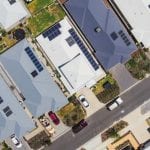Feed aggregator
British farming is in a grim state and Labour’s new measures will only make it worse | Tom Fairfax
Brexit, the cost of living and the climate crisis are all making farmers’ lives much more difficult. Taxing us is not the answer
- Tom Fairfax farms Mindrum Farm in Northumberland
Last year, Keir Starmer looked farmers in the eye at the annual National Farmers’ Union (NFU) conference and said he knew what it meant to lose a farm. It is “not like losing any other business”, he said. “It can’t come back.” Since then, Labour has announced a number of new measures aimed at farmers, including dropping the inheritance tax exemption that many have enjoyed. This is a drastic shift for an already strained sector and has sparked heated debate among farmers I know. But one thing has been missing: an understanding of farming and the pressures it faces.
The modern UK farming industry has been shaped by decades of government policy aimed at ensuring we have enough food to survive. While agriculture isn’t directly state controlled, the government’s influence is felt through regulation and incentives. If you are old enough, you may remember rationing, which marked an era when governments prioritised access to cheap calories, driving the shift toward intensive farming. This focus, backed by successive governments, led to farmers ramping up production by using new technology and infrastructure, and chemicals such as DDT and glyphosate. But cheap food had vast environmental and social costs, posing a drastic threat to the sector’s sustainability and resilience in the long term, as soils were depleted and biodiverse habitats gave way to monocultures.
Tom Fairfax farms Mindrum Farm, a regenerative mixed farm in the Cheviot foothills in Northumberland
Continue reading...COP29: Saudi firm launches country’s first carbon market exchange
China can unlock vast methane reductions at negative cost, study finds
2024 has been ‘masterclass in climate destruction’, says UN chief – video
'2024 – a masterclass in climate destruction.' That is how the UN secretary general, António Guterres, started his address to world leaders at Cop29 on Tuesday. 'Families running for their lives before the next hurricane strikes; workers and pilgrims collapsing in insufferable heat; floods tearing through communities, and tearing down infrastructure; children going to bed hungry as droughts ravage crops. All these disasters, and more, are being supercharged by human-made climate change,' he said
Cop29: 2024 has been ‘masterclass in climate destruction’, says UN chief – live updates
Critics say approval of ‘climate credits’ rules on day one of Cop29 was rushed
New biochar funding platform to connect startups with investors and carbon credit buyers
COP29: Roundup for Day 2 – Nov. 12
World leaders to speak as Cop29 resumes – live updates
Keir Starmer and Viktor Orbán among the delegates expected to address the UN climate conference
The UN and the Cop presidency have celebrated last night’s early breakthrough on carbon credits rules that pave the way for a carbon market. “Yesterday we secured critical progress on one of our key priorities, article 6” said Azerbaijan’s lead negotiator Yalchin Rafiyev, referring to a fraught section of the Paris agreement that has frustrated climate negotiators for nearly a decade. The move is a “gamechanger to direct resources to the developing world and save up to $250bn a year to implement climate plans,” he said.
Carbon markets let rich countries and companies pay poor ones to cut emissions and count the savings on their own. It’s a process that can speed up climate action by plucking cheap and low-hanging fruit first, but runs the risk of being abused when underwhelming or harmful projects are credited, or when projects are double-counted.
NGOs reacted with anger to the way in which the rules were pushed through on Monday night, describing it as a “backdoor deal”. The supervisory body adopted new standards ahead of the summit and recommended the parties to approve it, breaking with previous years in which it had given negotiators a set of recommendations to discuss.
Maria Aljishi, chair of the supervisory body, said further work was being done to develop standards at a press conference on Tuesday. “We absolutely must follow due process at all times. The CMA [parties to the Paris agreement] are free to give the supervisory body any guidance, and we are more than happy to receive that guidance and act on it.”
The world leaders in attendance have posed for the traditional “family photo” before the high-level segment gets under way.
Continue reading...Shell wins appeal against court ruling ordering cut in carbon emissions
Oil and gas company had challenged 2021 ruling that it must reduce greenhouse gas emissions by 45% by 2030
Shell has won its appeal against a landmark climate ruling in the Netherlands, which in 2021 ordered the oil and gas company to sharply reduce greenhouse gas emissions.
Shell had appealed against a lower court ruling in 2021 that it must cut its global carbon emissions by 45% by the end of 2030 compared with 2019 levels.
Continue reading...South Korean securities firm taps into biochar, carbon removal business
Government proposes testing bathing waters in England and Wales all year round
Sites currently only tested for dangerous pollution during ‘bathing season’ from May to September
Bathing waters in England and Wales could be tested all year round in a government shake-up to water pollution rules.
At the moment, designated bathing sites are only tested for dangerous pollution that could make swimmers sick during the “bathing season”, which runs from May to September.
Continue reading...UK has ‘huge opportunity’ to lead on green investment, Starmer says
PM says Britain can ‘win the race’ as Trump’s election casts doubt on global efforts to tackle climate change
Britain has a “huge opportunity” to get ahead of other countries in the race for green investment after the election of Donald Trump as US president, Keir Starmer has said, as he arrives in Azerbaijan for the Cop29 summit.
Trump’s election victory last week has cast doubt on global efforts to tackle climate change, which the president-elect has called a “hoax”. But as the most senior world leader attending the summit in Baku, Starmer said the global political turmoil could benefit the UK economy.
Continue reading...Regulator agrees to “smooth” cost of gas network death spiral as electrification reality dawns
The post Regulator agrees to “smooth” cost of gas network death spiral as electrification reality dawns appeared first on RenewEconomy.
Rooftop solar delivers 80 pct share of generation in landmark moment in world’s biggest isolated grid
The post Rooftop solar delivers 80 pct share of generation in landmark moment in world’s biggest isolated grid appeared first on RenewEconomy.
'A horrific smell': Geelong's corpse flower blooms – video
The so-called corpse plant takes a decade to flower – and when it does, the blossom lasts just 24-48 hours and smells of rotting flesh. Guardian Australia's Henry Belot went along to take whiff
Continue reading...Big win for wind industry as planning changes tighten rules on “phantom dwellings”
The post Big win for wind industry as planning changes tighten rules on “phantom dwellings” appeared first on RenewEconomy.
‘Days of severe storms’ to rumble across Australia, with hail and millions of lightning strikes expected
Low pressure troughs sitting over swaths of the country are being charged by warmer-than-average ocean temperatures, weather expert says
- Follow our Australia news live blog for latest updates
- Get our breaking news email, free app or daily news podcast
Days of severe storms have been forecast for every mainland state and territory in Australia this week, with possible wind gusts, heavy rain, large hail and flash flooding on the cards.
Weatherzone meteorologist Ben Domensino said “millions of lightning strikes” were also expected across the country.
Sign up for Guardian Australia’s breaking news email
Continue reading...LED lights on surfboards or kayaks may deter shark attacks, researchers say – video
Using LED lighting on the underside of surfboards or kayaks could deter great white shark attacks, new research suggests. An Australian-led study found lighting disrupted the ability of great whites to see silhouettes against the sunlight above, reducing the rate at which the sharks followed and attacked seal-shaped decoys. 'We think this tells us a lot about how sharks see the world and how they detect and target their prey,' Macquarie University's Prof Nathan Hart says. 'But it also potentially gives us an insight in to how we can develop a non-lethal shark deterrent.'
Continue reading...





